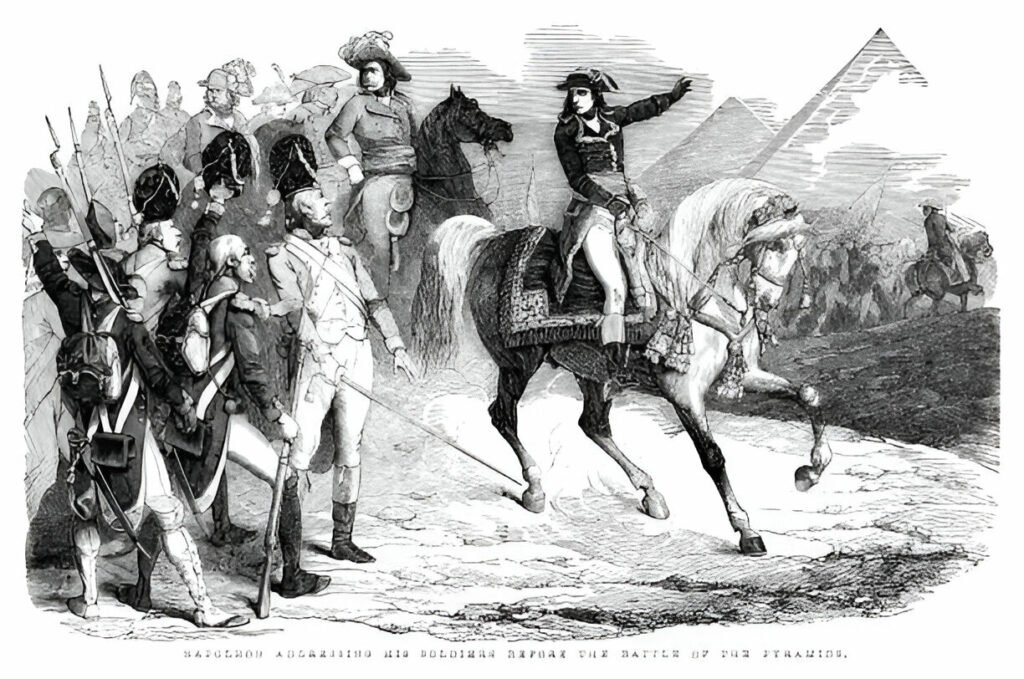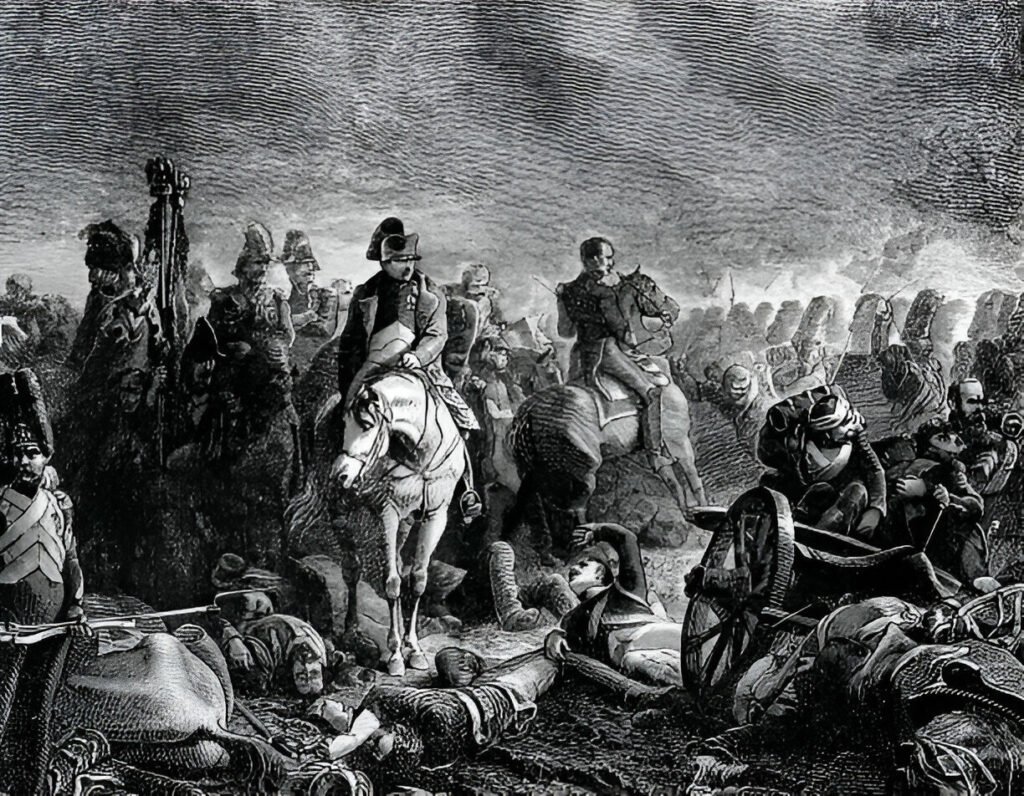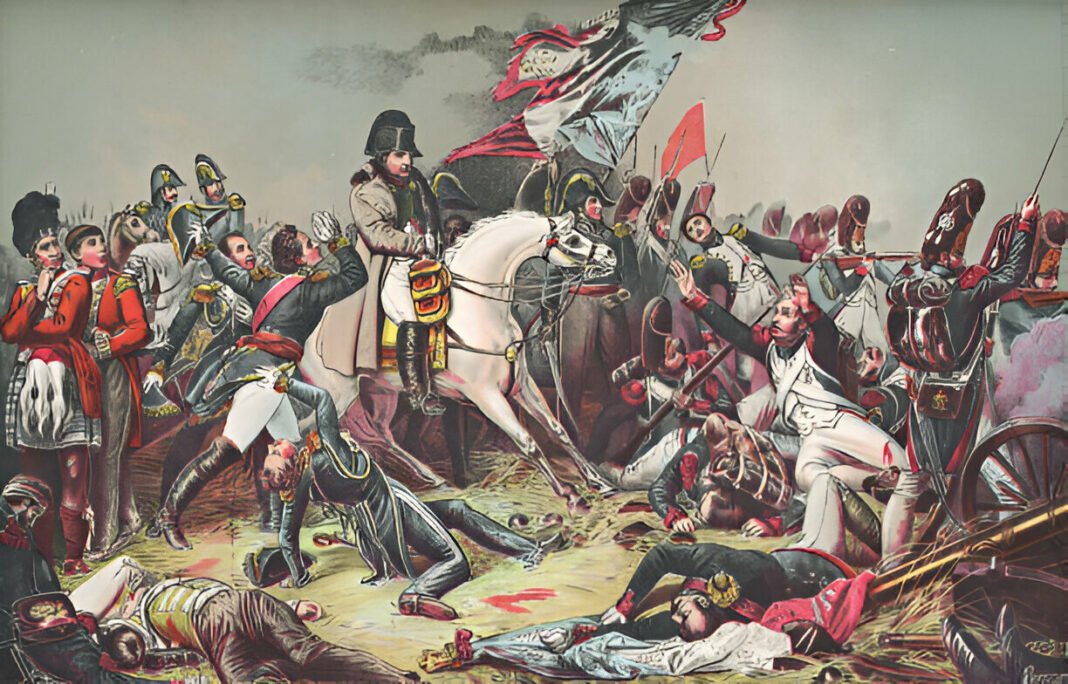Napoleon Bonaparte The Rise and Fall of a Military Genius
Napoleon Bonaparte, a name synonymous with military genius and ambition, left an indelible mark on history. Rising from modest beginnings to become the Emperor of France, Napoleon revolutionized warfare with his innovative tactics and strategic brilliance. However, his meteoric rise was matched by a dramatic downfall, shaped by his own hubris and the relentless forces of his enemies. This article delves into the life of Napoleon, exploring his groundbreaking military strategies and the factors that led to his ultimate defeat.
Early Life and Rise to Power
Napoleon Bonaparte was born on August 15, 1769, in Corsica, a Mediterranean island that had recently become French territory. From an early age, Napoleon showed a keen interest in military affairs. He attended the prestigious École Militaire in Paris, where he excelled in his studies. By the age of 24, he was promoted to brigadier general, a testament to his talent and ambition.
The Italian Campaigns
Napoleon’s rise to prominence began with his successful campaigns in Italy. He became the French Army of Italy’s commander in 1796. Napoleon’s innovative use of artillery and his ability to move troops rapidly allowed him to outmaneuver larger Austrian forces. His victories in battles such as Lodi and Arcole secured French dominance in northern Italy and established his reputation as a brilliant military leader.
Egyptian Expedition
In 1798, Napoleon embarked on an ambitious campaign in Egypt, aiming to disrupt British trade routes and expand French influence in the East. Although the military aspect of the campaign had mixed results, Napoleon’s strategic vision was evident. The discovery of the Rosetta Stone during this expedition was a significant cultural milestone. Despite setbacks, including a naval defeat at the Battle of the Nile, Napoleon’s reputation remained largely intact.

The Coup of 18 Brumaire
By 1799, France was in political turmoil. Sensing an opportunity, Napoleon returned to Paris and orchestrated the Coup of 18 Brumaire, overthrowing the Directory and establishing the Consulate. As First Consul, Napoleon centralized power and initiated reforms that stabilized France. His legal reforms, embodied in the Napoleonic Code, had a lasting impact on French and global legal systems.
Coronation as Emperor
In 1804, Napoleon crowned himself Emperor of the French, consolidating his power and ambition. His reign was marked by a series of military campaigns that expanded the French Empire across Europe. Napoleon’s innovative tactics, including the use of corps system and rapid maneuvering, resulted in decisive victories at battles such as Austerlitz and Jena-Auerstedt.
Military Genius and Tactics
Napoleon’s military genius lay in his ability to adapt and innovate. He emphasized speed, flexibility, and surprise, often outflanking and outmaneuvering his enemies. The corps system allowed for independent yet coordinated action, giving his armies a strategic advantage. Napoleon’s use of artillery to support infantry assaults and his emphasis on morale and discipline further enhanced his battlefield effectiveness.
The Peninsular War and Russian Campaign
Despite his successes, Napoleon’s ambition led to overreach. The Peninsular War in Spain drained French resources and exposed weaknesses in his strategy. The 1812 invasion of Russia marked a turning point. Faced with harsh winter conditions and scorched earth tactics by the Russians, Napoleon’s Grande Armée suffered catastrophic losses. The retreat from Moscow was a devastating blow to his military might.
The Battle of Leipzig and Exile
In 1813, the Battle of Leipzig, also known as the Battle of Nations, saw a coalition of European powers decisively defeat Napoleon’s forces. This defeat led to the invasion of France and Napoleon’s abdication in 1814. He was exiled to the island of Elba, but his ambition remained unbroken.
The Hundred Days and Waterloo
Napoleon broke free from Elba and returned to France in 1815, marking the beginning of the Hundred Days. Despite a brief resurgence, his final defeat came at the Battle of Waterloo. Faced with a coalition led by the Duke of Wellington and Prussian forces, Napoleon’s army was decisively defeated. This loss marked the end of his rule and his subsequent exile to Saint Helena, where he spent the remainder of his life.

Factors Leading to Napoleon’s Downfall
Several factors contributed to Napoleon’s downfall. His relentless ambition led to overextension, draining resources and weakening his strategic position. The Peninsular War and the disastrous Russian campaign severely depleted his forces. Additionally, the coalition of European powers, united in their determination to end his dominance, proved too formidable for Napoleon to overcome.
Legacy of Napoleon Bonaparte
Despite his eventual defeat, Napoleon’s legacy endures. His military strategies and organizational innovations continue to be studied in military academies worldwide. Many nations’ current legal systems were founded on the Napoleonic Code. Napoleon’s impact on European history is profound, as he reshaped the continent’s political landscape and inspired both admiration and controversy.
Conclusion
Napoleon Bonaparte’s rise and fall is a tale of extraordinary ambition, military brilliance, and eventual downfall. His innovative tactics and strategic genius revolutionized warfare, while his reforms left a lasting mark on legal and administrative systems. However, his unrelenting ambition ultimately led to his undoing. Napoleon’s legacy serves as a powerful reminder of the complexities of power and the fine line between genius and overreach.
FAQs
Who was Napoleon Bonaparte?
Napoleon Bonaparte was a French military leader and emperor who rose to prominence during the French Revolution and led several successful campaigns across Europe.
What were some of Napoleon’s key military tactics?
Napoleon’s tactics included the use of the corps system for flexibility, rapid maneuvering, the strategic use of artillery, and emphasizing morale and discipline among his troops.
What led to Napoleon’s downfall?
Factors leading to Napoleon’s downfall included the overextension of his forces, the costly Peninsular War, the disastrous Russian campaign, and the coalition of European powers determined to end his rule.
What is the Napoleonic Code?
The Napoleonic Code is a legal framework established by Napoleon that influenced civil law systems worldwide. It emphasized clear and accessible laws, equality before the law, and the protection of property rights.
What was the significance of the Battle of Waterloo?
The Battle of Waterloo, fought in 1815, marked Napoleon’s final defeat. It ended his rule and led to his exile to Saint Helena, where he spent the rest of his life




